Pondless Fountain
Burbling water in a rocky stream, light bouncing off drops and splashes–we are all attracted to flowing water. In addition to the pleasure of sight and sound, fresh water attracts birds and wildlife. Fountains and bird baths provide a water source any where you want to have one but most require frequent cleaning and filling. Pondless fountains are a lower maintenance option.
What is a pondless fountain? The reservoir for water lies below a stone covered grate. This keeps the water clean, reduces issues with algae. and reduces evaporation. I saw a beautiful pondless fountain built by Bastrop birder and photographer, Brian Burgoyne, in his backyard, and began longing to have one of my own.
Installing the Fountain
The first step was a visit to Hill Country Water Gardens, in Cedar Park, Texas, near Austin. The friendly staff know the in’s and out’s of fountain building. They led us to a pile of limestone rocks sorted by size. Patiently stacking and rearranging the rocks, they worked with us until we found our three favorites .The idea is to create the illusion of water flowing from one rock to another, even though in reality each rock has its own water source.
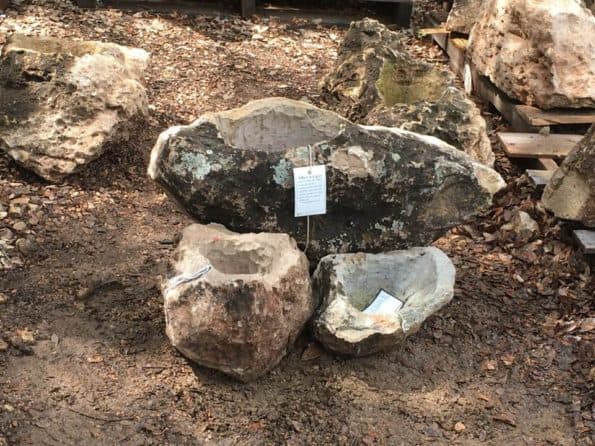
The rocks were hauled to a work station where they drilled a hole in the center bottom of each rock for a hose to fit through. They gathered the rest of the materials and explained each step of the fountain assembly. Installation and delivery are available, but we decided we could do it on our own. Caveat: It takes a very strong person to lift these rocks.
Materials
We purchased the three limestone rocks, a 4′ x 4′ rigid pond liner with a grate, concrete blocks to support the grate, a pump, hose and fittings, and river rock.
Choose a Location
Back home the next step was easy–choose a location for maximum visibility from the house and the future screened portch. The screened porch took some imagination.
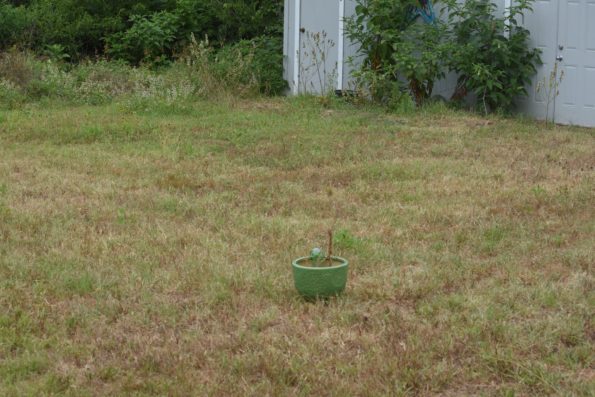
Dig the Hole
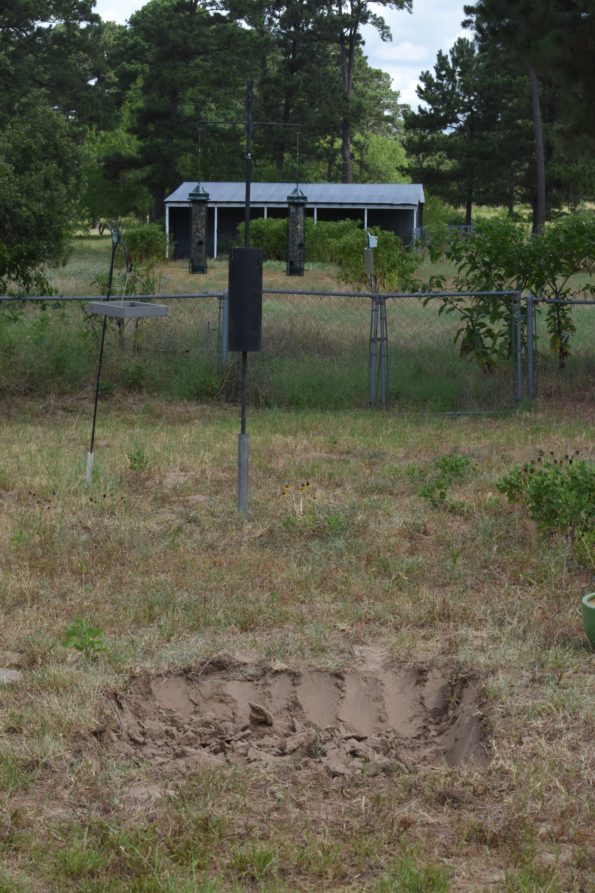
Wash the River Rock
The river rocks have to be rinsed to prevent silt from ending up in the fountain. A giant colander would have worked well, but we settled for washing the rocks on the driveway then transporting by wheel barrel.
The Tricky Parts
The next steps are best understood by watching this video created by Hill Country Water Gardens and Central Texas Gardener. I have to admit that I was so involved in the process of installing the poodles fountain, I forgot to take photos. Basically, the liner is placed in the hole and leveled. The cement blocks are put in place to support the grate. The pump is placed in the bottom of the pond. The hoses are inserted into the large rocks. After the rocks are placed, the hoses go through the grate and attach to a fitting that is attached to the pump. (Thanks to Brian Burgoyne for help with the pump and heavy lifting.) The pump cord cord comes up though the grate. River rock covers the grate. That’s it! Then you can have fun adding the finishing touches like special rocks and landscaping.
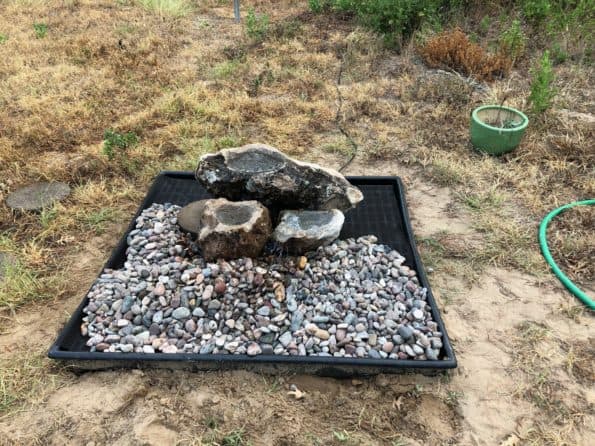
The Fun Part– Get Creative!
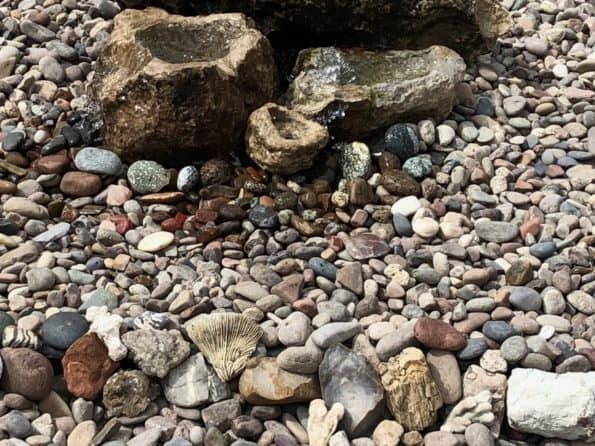
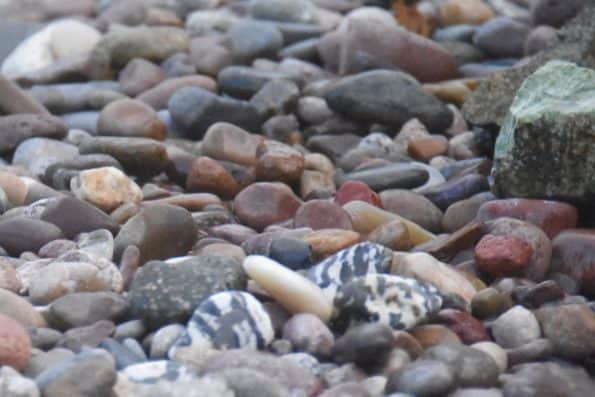
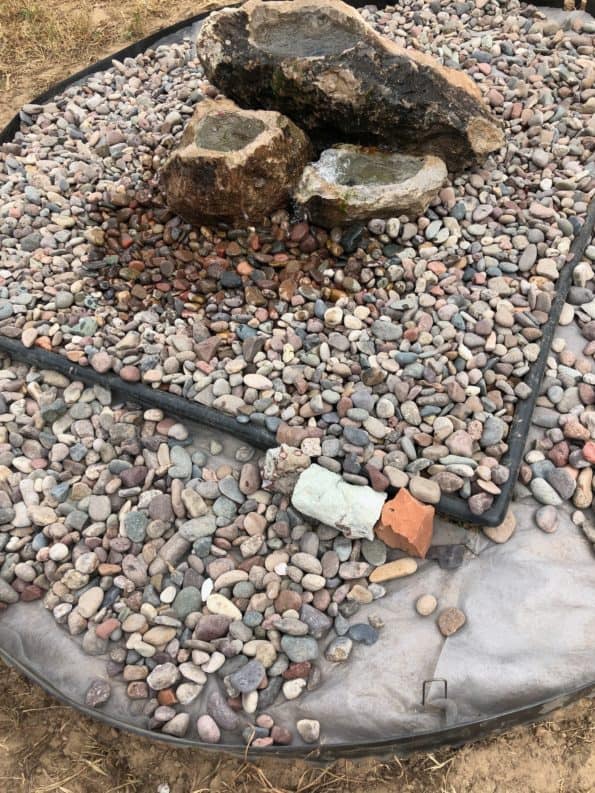
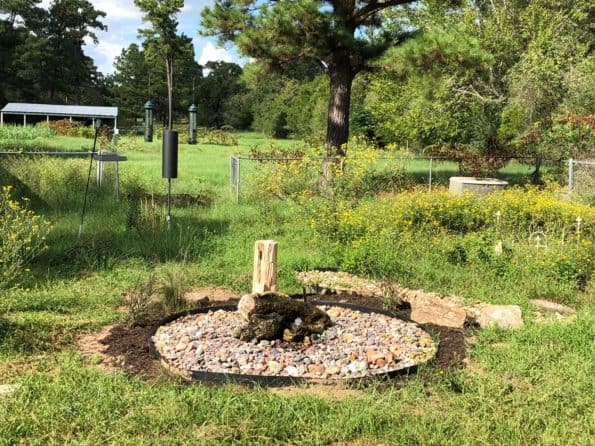
Wildlife Enjoying the Fountain
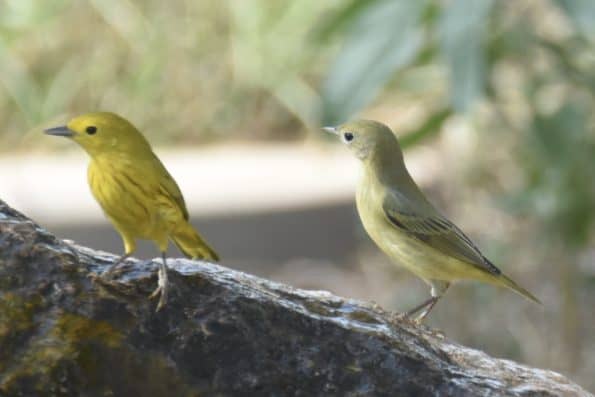
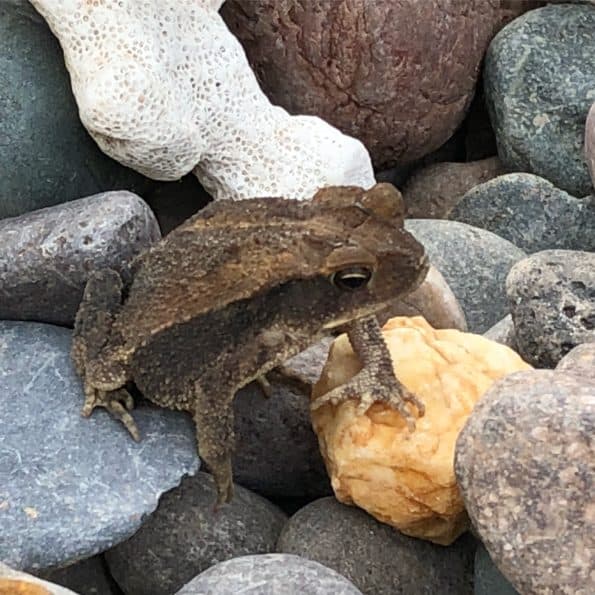
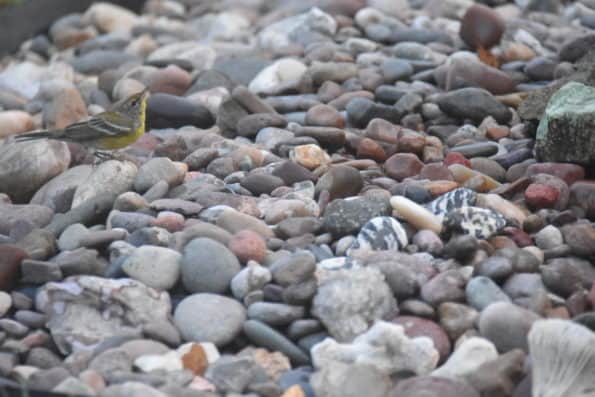
One Thing Leads to Another
The new fountain is the center of an ambitious landscaping project. The sandy soil, encroaching bermuda grass, and prolific grass burs are a challenge but one step at a time I plan to create an oasis for birds and butterflies. Once we finally get that screened porch built ,the fountain and butterfly garden will be ready to enjoy.
An Update

This spring we added more rocks, a shallow area for bathing, and a bed of native plants. A Ruby-throated Hummingbird regularly enjoys the nectar.






[…] things work out for the best. The outdoor outlet for the fountain stopped working and the electrician gave me a very high estimate to trench and run a new line. I […]